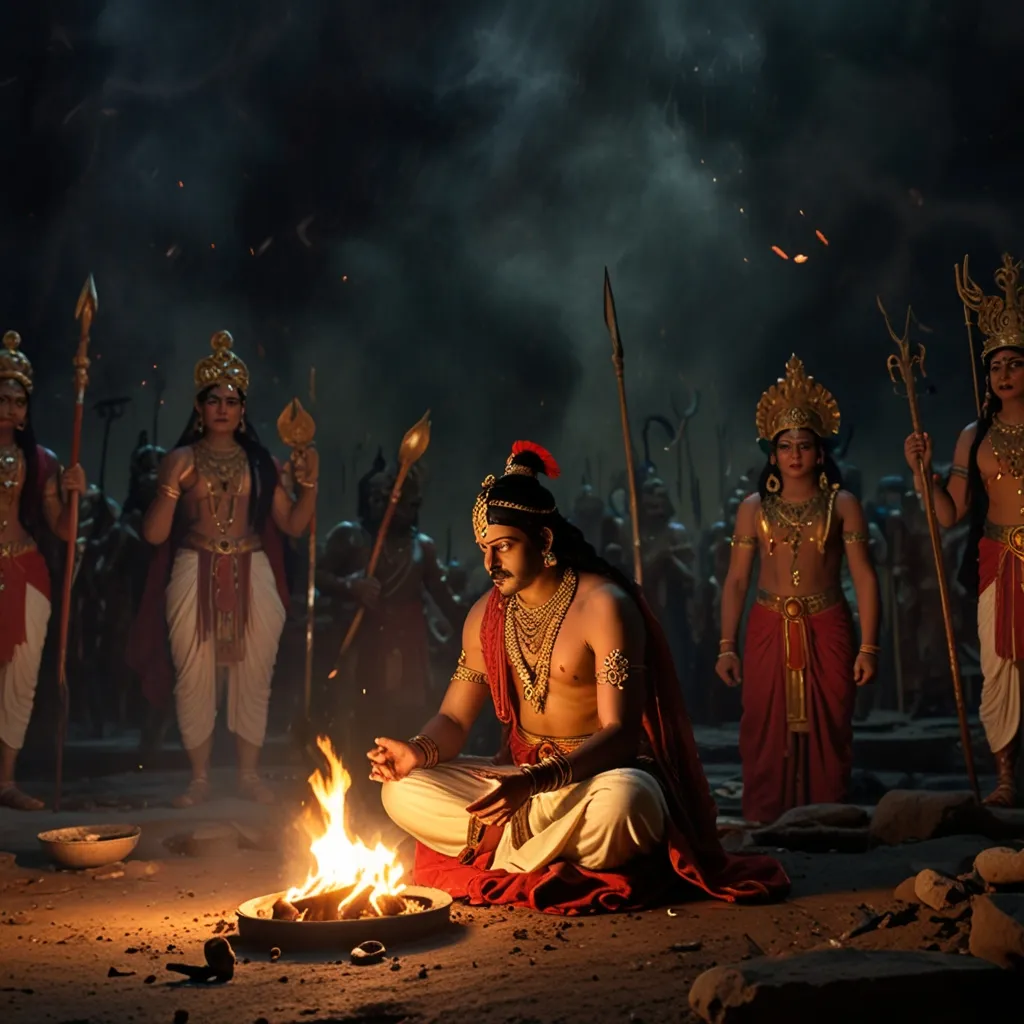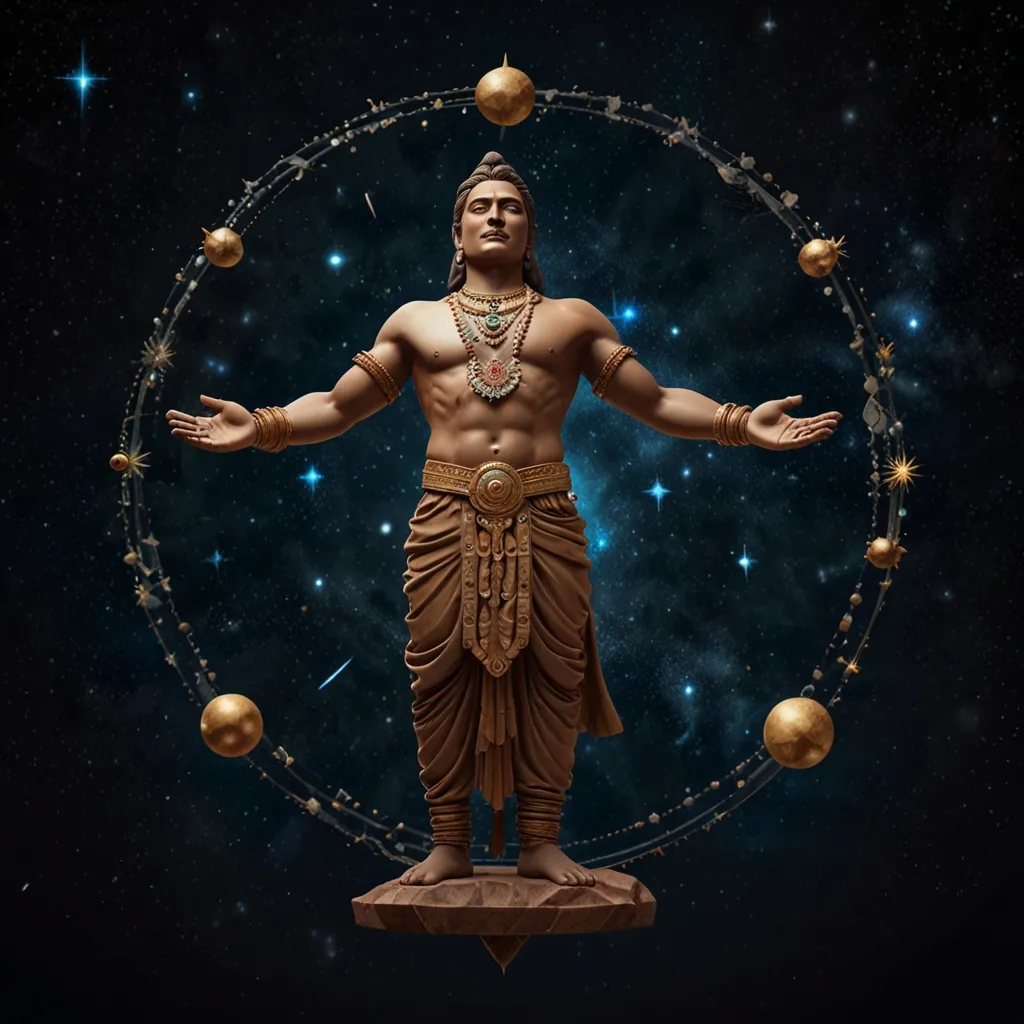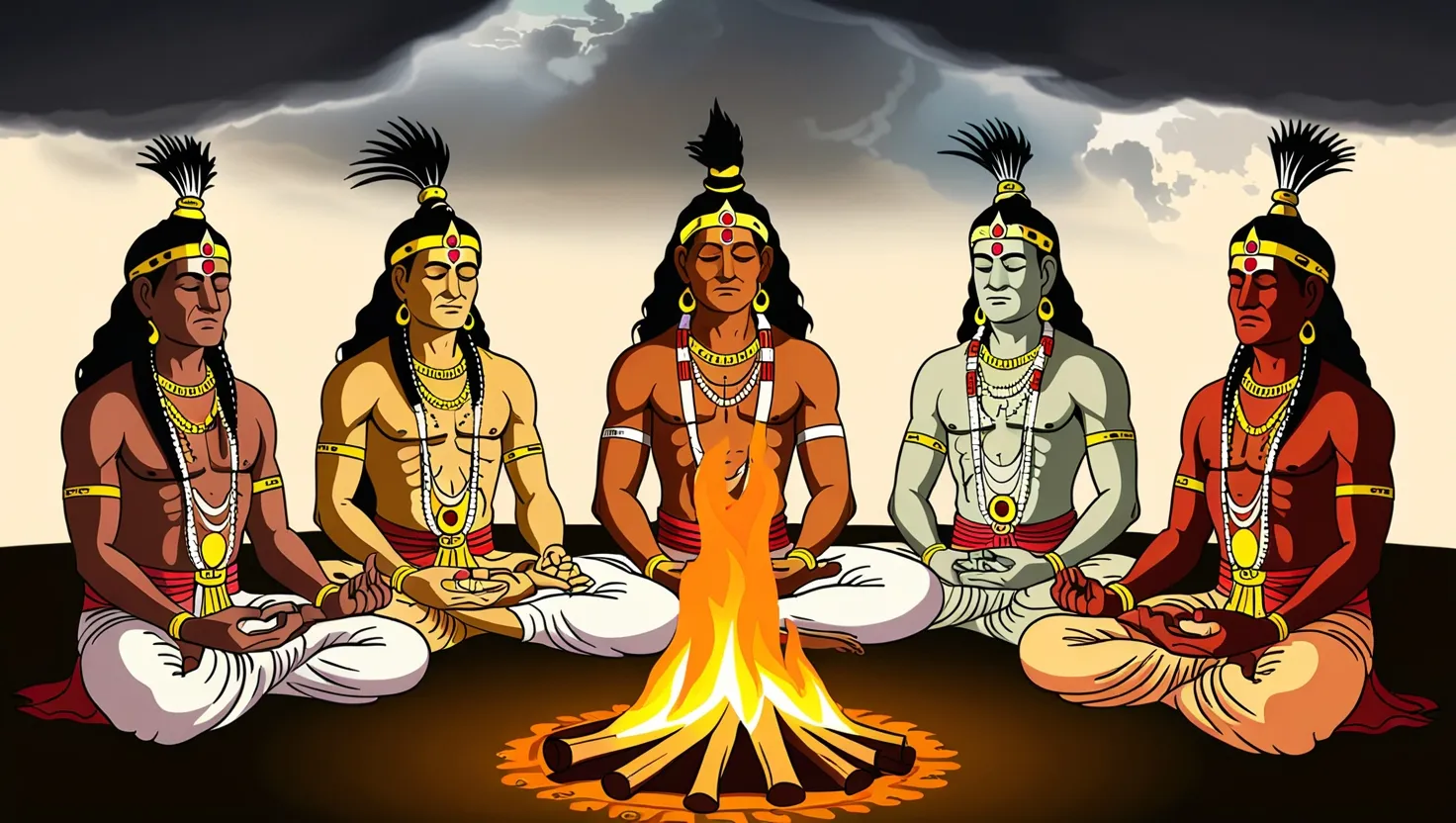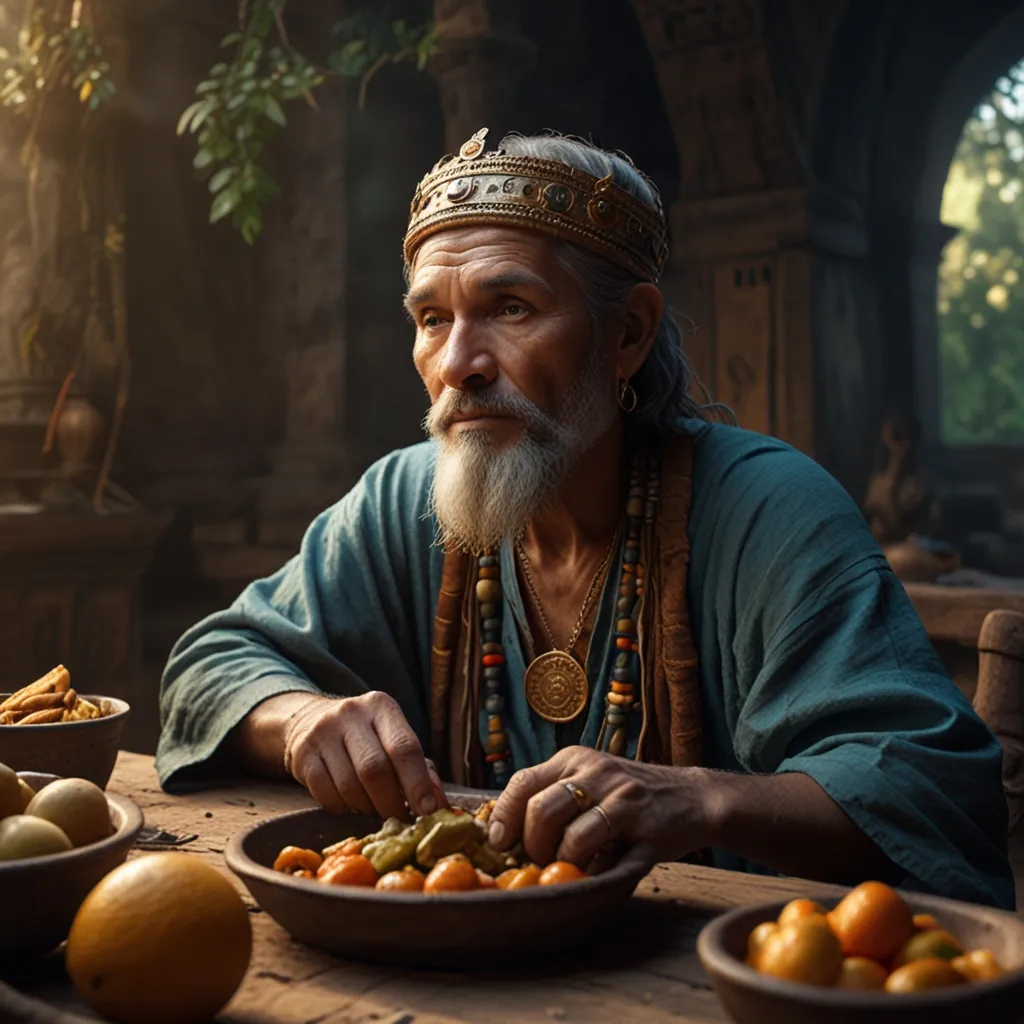In the vast and mesmerizing chronicle of the Mahabharata, one of the most intriguing stories is the birth of Duryodhana, the eldest son of King Dhritarashtra. This saga is woven with prophecy, intense emotions, and a sequence of events that set the stage for the grand war that would engulf the Kuru dynasty.
Dhritarashtra, a blind king, married Gandhari, who was destined to become the mother of a hundred sons. Their marriage was blessed by the sage Krishna Dvaipayana, who promised Gandhari that she would bear sons, all like their father. This blessing, while seemingly benign, was the beginning of a journey marked by anxiety and despair.
Gandhari’s pregnancy, lasting an unforeseen two years, brought immense distress. Imagine waiting so long, only to see others around her rejoicing in the birth of their children. When Gandhari learned that Kunti, the wife of Pandu, had given birth, her frustration boiled over. In a moment of intense anger and sorrow, she struck her womb. The consequence of this was a premature and troubling delivery — a hard mass of flesh resembling an iron ball.
At this point, Gandhari’s anxiety surged as she considered discarding the mass. However, Krishna Dvaipayana appeared at the crucial moment, shocked by her actions. He assured Gandhari of his promise and advised patience. Following his instructions, she procured a hundred jars filled with ghee, placed them secretly, and allowed the sage to sprinkle water on the mass. Miraculously, the flesh divided into one hundred pieces, each piece the size of a thumb. They were placed in the jars to mature for two more years.
While these jars were under vigilant watch, Kunti gave birth to Bhima, adding to the stature of the Pandavas. Meanwhile, the pieces in the jars continued their quiet transformation. Eventually, after the required two years, the jars opened, and from each emerged a baby boy. The eldest of these sons was named Duryodhana, and a daughter named Dushala came from the 101st jar.
Though the birth of a hundred sons could be joyous, Duryodhana’s arrival was shrouded in ominous signs. The newborn’s cries were unsettling, echoing through the air and provoking responses from vultures, jackals, and crows. The city faced fierce winds and uncontained fires, signaling unrest. Troubled by these signs, Dhritarashtra sought counsel from the wise men of his kingdom.
Among the advisors was Vidura, known for his wisdom and foresight. He warned Dhritarashtra that Duryodhana’s birth foretold destruction. Vidura’s advice was grim but clear — abandoning the child would prevent future calamities. Locked in a struggle between paternal love and prudent counsel, Dhritarashtra’s heart leaned towards his new son. Despite the dire warnings, he couldn’t bring himself to let go of Duryodhana, a decision that would ripple through the annals of their history.
Aside from his one hundred sons with Gandhari, Dhritarashtra had another son named Yuyutsu, born from a Vaishya woman, whose role would also prove significant as the tale unfolded. The birth of Duryodhana and his siblings marked the beginning of a stormy period for the Kuru clan.
This story is not just about an unusual pregnancy or the birth of many sons; it’s a snapshot of societal norms and familial dynamics in ancient India. It showcases the value placed on omens and the critical role advisors played in guiding rulers. Dhritarashtra’s decision to keep Duryodhana, despite the ominous signs, set off a chain of events that would ultimately change the fate of not only the Kuru family but the entire kingdom.
Duryodhana’s life was built on ambition and an unyielding quest for power. His resilience and refusal to give up were notable. However, his relentless pursuit often blinded him to the broader consequences. His final showdown with Bhima, where he was dishonorably struck down, highlighted the culmination of his tragic journey. Though brave, his end was seen as the fulfilment of a prophecy of destruction.
The birth and life of Duryodhana offer profound lessons. It underscores how our decisions, even against clear warnings, can profoundly affect our lives and those around us. The Mahabharata, in its timeless depth, continues to be a source of learning, reminding us of the complexities of the human condition and the unpredictable tapestry of fate.






